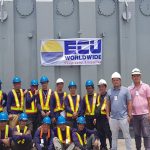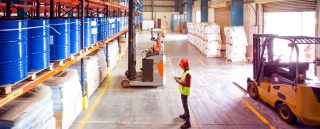In the past 20 years, Vietnam has signed a series of free trade agreements, beginning with joining ASEAN in 1995, to inking a free trade pact with the USA in 2000 and joining the orld Trade Organization in 2007. Over the past decade, it has signed several more ASEAN deals with China, India, Japan, Korea and the Trans-Pacific Partnership too was rung in—without the USA. In July 2019, Vietnam signed a trade deal with the European Union (The EVFTA) to eliminate 99% of tariffs on goods imported from the country to the trade bloc. This pact is expected to increase EU exports to Vietnam by over 15% by 2022. As a result, the country, previously regarded as a business and economic laggard, has instead jumped to the front of the queue, competing with not just countries in East and South East Asia, but around the world as a hub for sourcing, business and investment.
In the past two decades, Vietnam, a country of approximately 96 million, has gone from an economic also-ran into an emerging superpower. Emerging from the shambles of a two-decade war in 1975, the country was one of the poorest in the world, with growth stuttering under early five-year plans. A decade along, the government changed track, initiating a series of economic and political reforms called Doi Moi reforms aimed at propelling the country’s growth. Over the past 20 years, the country’s administration has rapidly liberalised its trade, reregulated its economy and invested heavily in human and physical capital, mainly through public investments.
As a result the country, previously regarded as a business and economic laggard, has instead jumped to the front of the queue, competing with not just countries in East and South East Asia, but around the world as a hub for sourcing, business and investment. In the past 20 years, Vietnam has signed a series of free trade agreements, beginning with joining ASEAN in 1995, to inking a free trade pact with the USA in 2000 and joining the World Trade Organization in 2007.
Over the past decade, it has signed several more ASEAN deals with China, India, Japan, Korea and the Trans-Pacific Partnership too was rung in—without the USA. In July 2019, Vietnam signed a trade deal with the European Union (The EVFTA) to eliminate 99% of tariffs on goods imported from the country to the trade bloc. This pact is expected to increase EU exports to Vietnam by over 15% by 2022.
As a business-friendly supplier to companies from around the world, Vietnam advocates leaner bureaucracy compared to China and fewer restrictions on foreign direct investment. In many industries there are no restrictions at all. In addition the rules around foreign ownership of businesses are much more relaxed, making it easier for overseas businesses to set up shop there. As businesses leverage new opportunities, ECU Worldwide Vietnam helps them with seamless cargo transportation and end-to-end transit.
Vietnam has also been building out its social infrastructure to keep pace with this economic growth. With a large growing population, the government invested heavily in education – to make sure its people were ready for the flood of jobs that were coming through. In infrastructure – such as roads, power and ports, and in high speed broadband service – to provide access and bridge the digital gap faced by the Vietnamese population, to give them a gateway to the world’s fourth industrial revolution.
All this has helped boost Vietnam’s profile globally. In the World Bank’s Ease of Doing Business rankings Vietnam rose from 104 in 2007 to 69 in 2019. The country has made rapid strides on everything from enforcing contracts to increasing access to credit and electricity and paying taxes and trading across borders. The country’s rapidly growing economy and middle class are, in turn, spawning a strong consumer culture and increasing levels of disposable income. Electronic retail is fast becoming the preferred method of shopping—particularly among the country’s youth.
These improvements have made Vietnam a magnet for business investments. Vietnam topped a study conducted by Natixis SA that evaluated seven emerging Asian economies, as manufacturing alternatives to China. The study examined demographics, low wages, the World Bank’s Ease of Doing Business rankings, and logistics to determine manufacturing options. As part of this upgrade to its economy, Vietnam’s government has positioned the country as a ‘China Plus One’ location for a range of business activities. Now, with China facing increasing trade headwinds from the USA, thanks to a series of protectionist tariff impositions, Vietnam stands to benefit.
In a June report produced by Nomura, Vietnam is estimated to have gained 7.9% in its Gross Domestic Product from this tariff battle. Products that have experienced the greatest increase in exports were phone parts, furniture, and automatic data process machines, all traditionally exported from China to the USA.
“Recognising the opportunities in Vietnam, ECU Worldwide established a presence here as far back as 2006. Since then, we have helped companies from across the world ship products to and from Vietnam. With ECU Worldwide’s global network of 300-plus offices in over 160 countries, we have partnered numerous businesses in their quest for success in Vietnam,” said Simon Sachu, Regional CEO – Asia Pacific, ECU Worldwide.
“ECU Worldwide Vietnam offers 70-plus direct trade lines, a 115-plus team and a network capable of carrying approximately 180,000 cubic metres per year to facilitate movement of goods globally. We offer a complete range of services including Less than Container Load (LCL), Full Container Load (FCL), air freight and value-added services to customers looking at doing business in Vietnam,” elucidated Son Nguyen Anh Son, Country Manager – Vietnam, ECU Worldwide.
Electronics, footwear and clothing and accessories are the three biggest categories of exports from Vietnam, while electrical machinery, machinery including computers and plastics and plastic articles are its biggest imports. Vietnam is the second largest textile and garment supplier to South Korea after China and is soon forecast to take the top spot.
The world’s biggest corporations are making a beeline for Vietnam, to benefit from this positive atmosphere for global trade. A range of companies including Nike, Samsung and Apple have all expanded their operations here. More tellingly, Vietnam has also become the go-to destination for a range of manufacturing right from high-tech electronics to industrial goods. For example, Goertek, the maker of Apple’s AirPods has shifted base to Vietnam, following trade tensions in China. Cheng Uei, a Taiwanese firm that specialises in manufacturing equipment for iPhones and Petragon, an assembler of iPhone equipment, have both expanded their Vietnamese presence too. American Universal Alloy Corporation, a leading manufacturer of aerospace gear, recently opened a factory in Danang, where it has invested USD 170 million. Alton Industry, a maker of air compressors and robot vacuum cleaners, spent USD 487 million to set up a plant too.
Vietnam is quickly becoming a prime market for foreign investment in e-commerce activities. Dong Nai province, for example, has 27 American investors, mainly operating in the industrial production with total registered capital of over USD 207 million, and more than 70 projects worth over USD 2.8 billion from 13 European countries, focusing on industry and machine equipment production, spare parts, electronics, and garment and textiles. In Dong Nai, 80% of goods produced by businesses are exported, with the remaining used for domestic consumption.
As Vietnam continues to improve its logistics backbone and adds more free trade agreements to its kitty, the country is emerging as a Star of the South-East. With its strong network and capabilities, ECU Worldwide Vietnam is perfectly positioned to help businesses leverage this potential.














